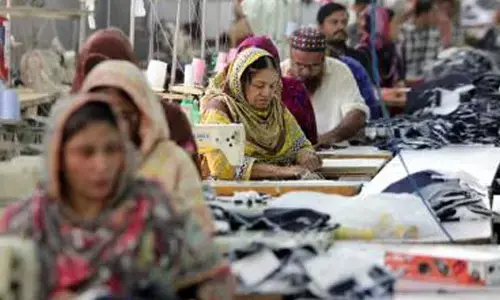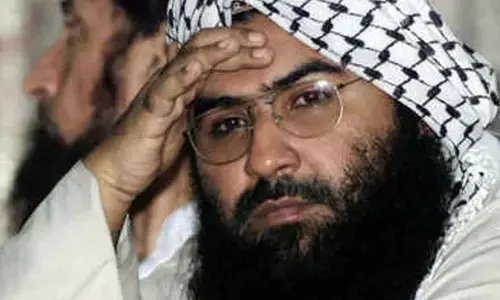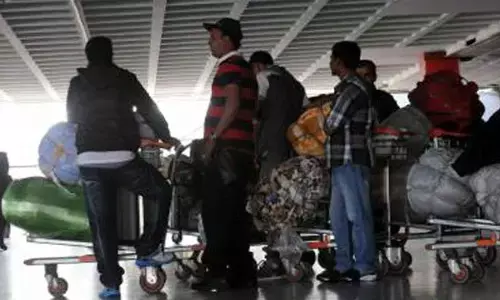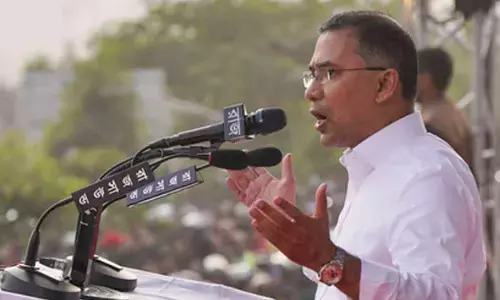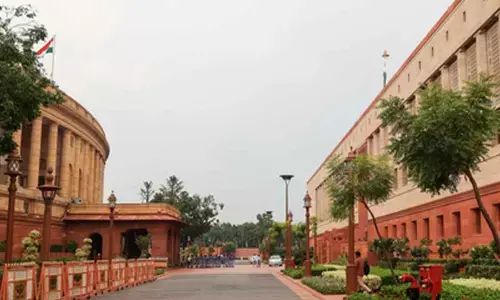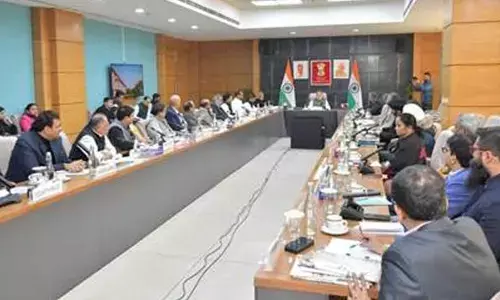Justice Delayed – Justice Defamed
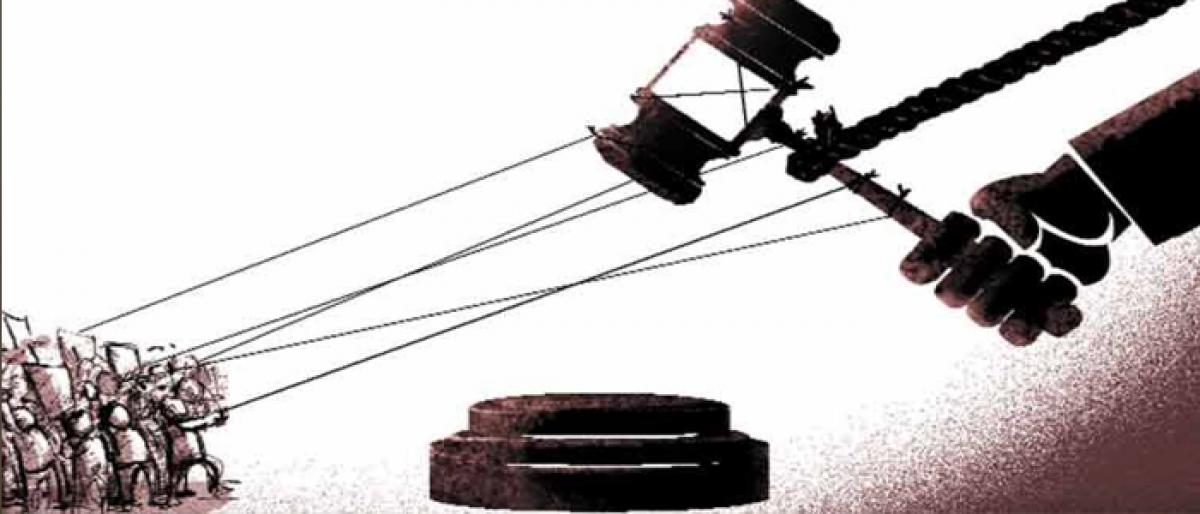
Justice delayed, the famous saying goes, is justice denied This realisation has always been uppermost in the minds of all concerned, from the newly swornin Chief Justice of India to the officers occupying the lowest rungs in the judicial system From the common man to the litigant public, the bar, the judiciary and the entire body politic desire that justice should be dispensed quickly And
“Justice delayed,” the famous saying goes, “is justice denied.” This realisation has always been uppermost in the minds of all concerned, from the newly sworn-in Chief Justice of India to the officers occupying the lowest rungs in the judicial system. From the common man to the litigant public, the bar, the judiciary and the entire body politic desire that justice should be dispensed quickly. And all of them know that this, in fact, is not happening.
Until recently, however, no motives were generally attributed to delays. But now, in some quarters, doubts are arising in regard to the manner in which certain recent cases, involving politicians, have been dealt with. Such doubts, if allowed to persist, may ultimately smirch the fair name of the judiciary.
As elections approach in Telangana state, cases are being filed against leaders of the opposition parties. Among these, a serious case of human trafficking, as old as 2004, pertains to a former MLA. It is not clear whether, before requesting for the remand of the accused, the police produced any fresh evidence that had come to light, having held their hand all these years.
The situation is likely to give rise to suspicions in the minds of the public that the officialdom and the judicial system are abetting the ruling party’s political manoeuvres. Nothing would be more distressing than the public believing such a thing to be true. The consequent loss of faith in the credentials of the governance apparatus can strike at the very roots of the democratic system.
And there is the other side of the coin too. Chandrababu Naidu is alleging that the recent non-bailable warrant (NBW) issued to him by a Maharashtra Court in Dharmabad in an eight-year-old issue is part of BJP’s political conspiracy against him since he fell out with it. The BJP leaders, on the other hand, point out that the Court had issued 35 NBWs since 2015, even when Naidu was with NDA. They allege that that a very routine legal process is needlessly being dramatised by him to paint himself a martyr in the eyes of voters of Telangana.
And one hears a third version from those who oppose both the TDP and BJP! According to them, Naidu and the ruling BJP in Maharashtra continue to have good relationships, because of which Naidu had recently arranged for the appointment of the wife of a Maharashtra Minister on the board of the Tirumala Tirupati Devasthanams (TTD). They say that, on account of the imminent elections in Telangana state, Naidu caused a fresh NBW to be issued to remind the voters of Telangana that he had once fought for their cause demanding justice in regard to the waters of the Babli project in Maharashtra.
Whatever be the truth, any feeling in the public mind that cases can be switched on and off at the will of the political dispensation might cause loss of faith in judiciary and sound the death-knell of democracy. A civil dispute between two individuals can perhaps brook some delay in a Court. Inordinate delay in matter involving important political leaders, however, carries with it the danger of motives being attributed.
It is distressing enough that many institutions, such as the Election Commission or the Central Bureau of Investigation, should, in recent times, have become objects of doubt, in regard to their ability to remain impartial and fair, when subjected to political pressures. Surely this malaise should not spread to the most respected wing of the State, namely the judiciary.
Every walk of life has its share of black sheep. Thus, while it is certainly possible that a few unscrupulous elements may succumb to pressures from extraneous sources, it must be admitted as a matter of general principle that the judiciary is in need of some system reforms. Hundreds of thousands of cases are pending in the courts at various levels in the country.
Also, thousands of vacancies of judges and lower officials remain unfilled. Sparing sitting judges to head Commissions of Inquiry further depletes their strength. What is more, thanks to the recent stand-off between the collegium of the Supreme Court and the Government of India, one does not get the feeling that the situation will improve vastly in the near future. Computers have yet to find large-scale use within the courts.
The proposal to categorise cases and make judgements applicable across cases belonging to a given category has also yet to find acceptance. Then there are other issues such as the continuance of some outdated protocols, the limited number of working days in the year etc. Another drawback that contributes to delay in the disposal of cases by courts of law is the importance that the process attaches to even minor procedures, which leads to frequent adjournments.
Some immediate steps, which the judiciary can take, can perhaps include prioritisation of and clear demarcation of jurisdiction in cases. The Supreme Court has been approached in a variety of cases pertaining to conduct of a cricket tournament, noise pollution in a city or the display of the pictures of Hindu deities in a bar. At the same time, developmental projects are sometimes stalled while cases are heard in Courts, causing time and cost overruns.
This columnist has personal knowledge of a case where the system, rather than the individuals concerned such as the advocates or the judge concerned, has caused heavy losses to a company on which he is a director, mainly on account of the fact that a petition filed by the company to vacate a stay granted earlier would not come up for hearing, on account of the rigid rules governing the such proceedings.
Coming to the jurisdictional aspect, a case in point, for instance, is the question of granting bail to a person for whom a warrant of arrest is out. Strictly speaking, this is a matter that should be dealt at the level of a Magistrate’s Court. An appeal can, perhaps, lie to a level or two above that, which means, perhaps, after the district level. The fact is that bail applications are entertained, and dealt with by High Courts and, on occasion, even by the Supreme Court! The Supreme Court of the United States is extremely strict about matters that it entertains. No case in which there is no constitutional interpretation involved ever comes before it, merely because the law allows an appeal to be filed.
Our Constitution provides for concurrent jurisdiction for the High Court of a state and the Supreme Court, to entertain certain in types of petitions. In such cases also, perhaps, there is need for a policy that eliminates overlapping jurisdictions and facilitates expeditious disposal by avoiding duplication of work.
No doubt, the Supreme Court has, on several occasions, reprimanded the petitioners, saying that they have not exhausted other avenues to redress their grievances, including the lower Courts. Sometimes it has also fined those indulging in frivolous litigation. However, some legal Pundits have commented that such observations or decisions can easily be made in limine (at the very threshold, literally speaking) rather than as a formal order of a Bench after a hearing. They point out that the honourable judges should penalise their staff too for admitting such trivial cases.
It is most desirable and necessary that the judicial system, with all the systemic problems on hand, makes up its mind to dispose of, quickly and effectively and in a self-imposed time–bound regime, all cases where elements of political sensitivity or involved, so that no scope is given for allegations to be made. As the old adage goes justice should not only be done, but also seen to be done. The well-known teaser is ‘Quis custodiet ipsos custodies’? or freely translated, ‘Who guards the Guardians’? Our judiciary is its own custodian and will, undoubtedly, rise to the occasion.








